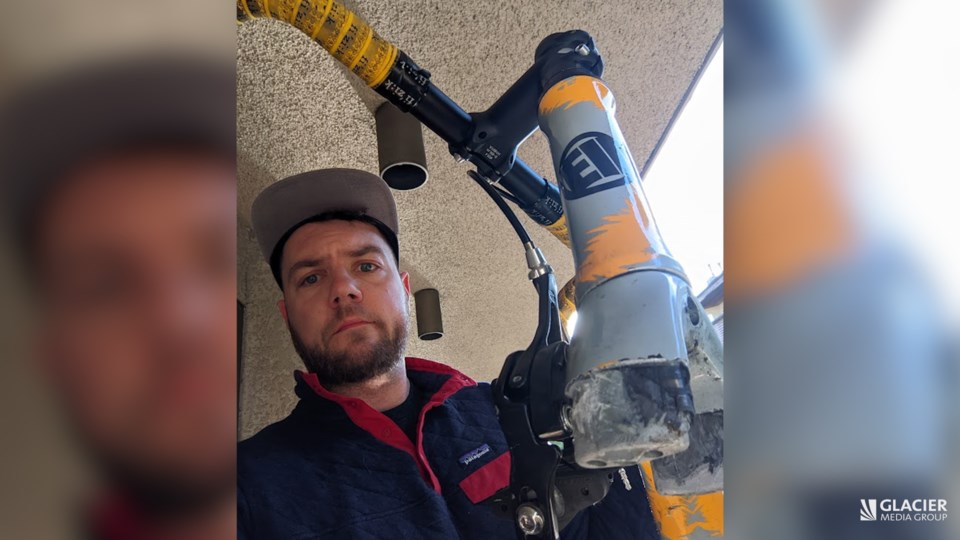ICBC says it will no longer be sending bills to most cyclists and pedestrians if they are struck by a driver and the vehicle is left with damages.
The decision flows from public outcry after Vancouver cyclist Ben Bolliger went public with his story in March. ICBC sent him a $3,752 bill to cover the cost of damages done to the vehicle of a driver who ran a stop sign and struck him, leaving Bolliger with permanent injuries.
Because of the province’s change to no-fault insurance, ICBC had deemed Bolliger partly responsible as a non-insured driver.
At the time, he told Glacier Media he was “flabbergasted” at the bill and sought change from the public insurer.
ICBC announced Wednesday (May 4) that it would be doing just that.
“Government and ICBC listened to the concerns raised from cycling advocates and Mr. Bolliger about the decision to bill him for vehicle damage after he was involved in a collision," said Mike Farnworth, Minister of Public Safety and Solicitor General, in a release. “The previous approach was not reflective of the changes we've made to auto insurance in British Columbia and that needed to be fixed."
Under the new rules, ICBC will not seek to recover costs if:
- the cyclist or pedestrian has suffered a severe or catastrophic injury;
- there has been a fatality;
- when ICBC deems liability for the collision is equally shared by the driver and pedestrian or cyclist because there isn’t enough evidence to determine exactly what happened.
Bolliger took to Twitter after the announcement and said it was "one big step in the right direction."
“I am hopeful that [ICBC] and [the provincial] government will make improvements that will meaningfully compensate [injured] vulnerable road users, and their families for catastrophic injuries, disability or a fatality, and it's something I will continue to push for,” he said.
In cases where the cyclist or pedestrian has suffered a non-severe injury, which the ICBC release does not define, the case will go to a committee of experts.
“We are committed to continuing to improve and this claim highlighted a situation where improvements needed to be made, and we are now making those changes," said Nicolas Jimenez, president and CEO of ICBC. “Our new care-based model is just one year old and we will keep looking for ways to improve on how we deliver Enhanced Care to British Columbians."
The changes were made in consultation with the BC Cycling Coalition and Hub Cycling, which welcomed the move.
"We feel the changes are a move in the right direction to support cyclists and vulnerable road users across the province, and we thank ICBC for recognizing the issues and being open to listening to the ongoing concerns of our members," said Mike Koski, executive director, BC Cycling Coalition. “By listening and taking action, positive change was made within just a matter of weeks."
Since Bolliger went public with his story, ICBC completed a review of his file and determined the driver was 100 per cent at fault.
“Mr. Bolliger is therefore not responsible for any damages or costs and will be fully compensated for damages to his bicycle and any other items.”
For a video report of cyclist Ben Bolliger and his $3,700 ICBC bill, click on the link below:



